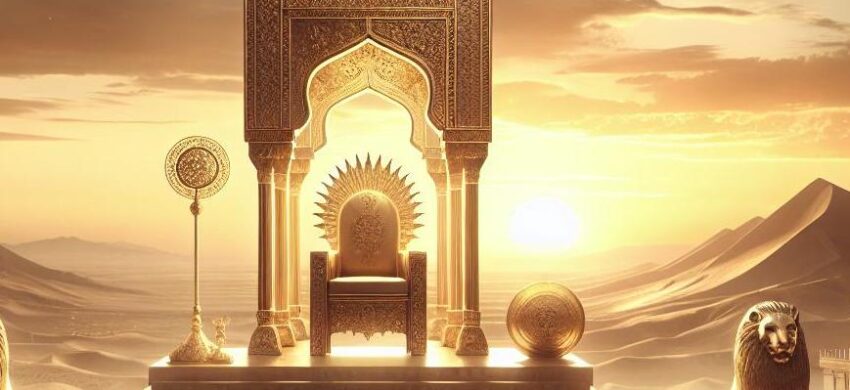The ascendancy of Xerxes to power, regarded as a significant event in Persian history, represents a journey of political skill, strategic alliances, and military might. Born as the heir apparent to King Darius I, the Prince was aptly educated in governance, strategy, and warfare. However, his route to the throne was far from unchallenged; he had to confront both external threats and internal power struggles.
Xerxes’ leadership accounted for several distinct aspects. First and foremost was his utilisation of political manoeuvring. As the eldest son, but not of the primary wife, he was not the straightforward successor. However, his strategic alliances and careful diplomacy with influential nobles and military leaders solidified his standing as the popular choice.
Secondly, the display of military prowess was crucial in confirming his legitimacy. Xerxes successfully quashed rebellions in Egypt and Babylon, proving himself both to his allies and his adversaries.
Lastly, Xerxes’ reign was characterised by an ambitious expansion policy. His grand campaign against Greece remains notable today, embodying his unwavering determination and strategic genius. His ability to rally and command vast forces demonstrated his leadership caliber, cementing his status as one of Persia’s most formidable rulers.
#1. Who was Xerxes born to?
C is the answer. In the text, it is clearly mentioned that Xerxes was born as the heir apparent to King Darius I.
#2. What factors worked in favor of Xerxes' ascend to the throne?
B is the answer. The text states that Xerxes used strategic alliances and careful diplomacy with influential nobles and military leaders to solidify his standing as the popular choice.
#3. What was one of the crucial factors that confirmed Xerxes' legitimacy as a ruler?
C is the answer. The passage illustrates that Xerxes confirmed his legitimacy as a ruler by demonstrating his military prowess, successfully quashing rebellions in Egypt and Babylon.
#4. Which campaigns reflect Xerxes' ability to rally and command vast forces?
B is the answer. The text refers to Xerxes’ grand campaign against Greece as an embodiment of his unwavering determination, strategic genius, and evidence of his ability to rally and command vast forces.
#5. How was Xerxes educated?
B is the answer. According to the text, as a Prince, Xerxes was educated in governance, strategy, and warfare.
#6. Why does Xerxes' reign stand out in Persian history?
C is the answer. The passage suggests that Xerxes’ reign stands out because of his ambitious expansion policy and his military successes, including his campaign against Greece and quashing rebellions in Egypt and Babylon.
 |
 |
 |




